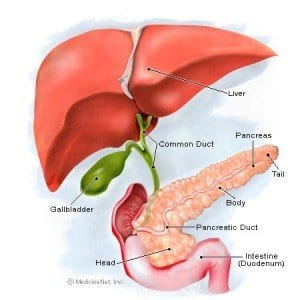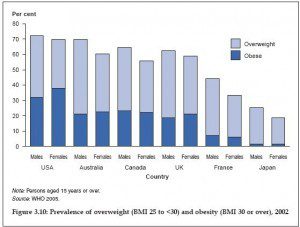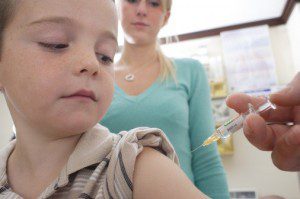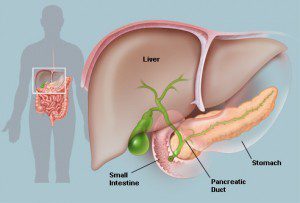 A study led by an Indian-origin researcher and published in the journal Nature Genetics has discovered six new genes that may cause the early onset of Type 2 diabetes in South Asians — those of Indian, Pakistani, Sri Lankan and Bangladeshi origin.
A study led by an Indian-origin researcher and published in the journal Nature Genetics has discovered six new genes that may cause the early onset of Type 2 diabetes in South Asians — those of Indian, Pakistani, Sri Lankan and Bangladeshi origin.
The study’s findings may provide new leads for scientists as they try to discover new diagnostic tools that will help them prevent and treat Type 2 diabetes.
Those of South Asian descent may be at up to four times the risk of developing Type 2 diabetes as opposed to those of European ancestry. The disease leads to other severe complications such as stroke and heart disease.
The study was conducted jointly by researchers around the world. They analyzed the DNA of 18,731 individuals who had been diagnosed with Type 2 diabetes, along with a healthy control group of 39,856 non-diabetic individuals. The researchers analyzed the genetic makeup of the individuals to search for variations in the genetic code that appeared to be common among those who had been diagnosed with diabetes.
When the study concluded, researchers had identified six areas of the genetic code where a difference of a single letter was linked to the development of Type 2 diabetes. The findings suggest that the genes related to these variables may play a part in determining an individual’s likelihood of developing diabetes.
“This is the first genome-wide association study in South Asians, who comprise one-quarter of the globe’s population, and who carry a high burden of the disease and its complications, including heart attack and stroke,” said Professor Jaspal S. Kooner with the National Heart and Lung Institute at Imperial College London. Kooner, the lead author for the study, said: “We have shown that the genetic variants discovered here in South Asians also exist and contribute to diabetes in Europeans. Our studies in Asians and European populations highlight the importance and gain in examining the same problem in different ethnic groups.”
Dr. John Chambers with the School of Public Health at Imperial College London was the senior author of the study. “Type 2 diabetes is more common in South Asian populations than any other ethnic group, but the reason for this increased risk is unclear,” said Chambers. “Although lifestyle factors such as unhealthy diet, physical inactivity and obesity are important causes of diabetes in South Asians, these are only part of the explanation. Genetic factors have been widely considered to play a role in the increased risk of type 2 diabetes in Asians, but to date have not been systematically explored in this population.”
“Our study identifies six new genetic variants linked to type 2 diabetes in South Asians. Our findings give important new insight into the genes underlying of diabetes in this population, which in the long term might lead to new treatments to prevent diabetes,” continued Dr. Chambers.
According to a research article published in 2007 in the British Journal of Diabetes and Vascular Disease, South Asians have a one in three chance of developing Type 2 diabetes over the course of their lives. Those who develop diabetes are also diagnosed with the disease ten years earlier than Europeans, on average. Not only does diabetes incur a greater social and economic burden on South Asians, but they suffer higher fatality rates from cardiovascular and renal disease as a result of their higher rates of diabetes. About 55 million South Asians worldwide are affected by diabetes, with that number projected to rise to 80 million by 2030.

 Scientists are currently performing tests on a new drug that may lead to the end of
Scientists are currently performing tests on a new drug that may lead to the end of  Obesity rates have been skyrocketing over the last three decades, and the epidemic shows no sign of slowing. While populations the world over have seen rising obesity rates, the West has been especially susceptible to the dangerously unhealthy rise in average weight, with all the health
Obesity rates have been skyrocketing over the last three decades, and the epidemic shows no sign of slowing. While populations the world over have seen rising obesity rates, the West has been especially susceptible to the dangerously unhealthy rise in average weight, with all the health  A meta-analysis of ten clinical trials has revealed that the consumption of dark chocolate and cocoa products, both of which are rich in polyphenol, may reduce total cholesterol and LDL cholesterol. However, consumption of these products has no effect on HDL cholesterol.
A meta-analysis of ten clinical trials has revealed that the consumption of dark chocolate and cocoa products, both of which are rich in polyphenol, may reduce total cholesterol and LDL cholesterol. However, consumption of these products has no effect on HDL cholesterol. U.S. consumers are more aware today that not all
U.S. consumers are more aware today that not all  The U.S. Institute of Medicine (IOM) has stated in a recent report that vaccines are overwhelmingly safe and that they do not cause diabetes or autism. The IOM came to the conclusion after reviewing over 1,000 published studies.
The U.S. Institute of Medicine (IOM) has stated in a recent report that vaccines are overwhelmingly safe and that they do not cause diabetes or autism. The IOM came to the conclusion after reviewing over 1,000 published studies. A high-tech diabetic safety service may soon use text messages to notify paramedics if a patient’s blood sugar levels dip too low. The program is being developed by researchers at Swansea University in Wales and scientists hope it reduce costs for the National Health Service in addition to saving the lives of diabetics.
A high-tech diabetic safety service may soon use text messages to notify paramedics if a patient’s blood sugar levels dip too low. The program is being developed by researchers at Swansea University in Wales and scientists hope it reduce costs for the National Health Service in addition to saving the lives of diabetics. A research team lead by Professor Ulf Ahlgren and his colleagues is at the forefront of the development of optical projection tomography. Based in Umeå University in Sweden, the team has used this emerging technology to describe embryonic development of the pancreas and the distribution of the islets of Langerhans in the adult pancreas. The team’s findings will aid future research that utilizes modeling of human organs in treating diabetes.
A research team lead by Professor Ulf Ahlgren and his colleagues is at the forefront of the development of optical projection tomography. Based in Umeå University in Sweden, the team has used this emerging technology to describe embryonic development of the pancreas and the distribution of the islets of Langerhans in the adult pancreas. The team’s findings will aid future research that utilizes modeling of human organs in treating diabetes. A position statement released by the Endocrine Society supports the use of central institutional review boards to encourage progress in clinical research and streamline regulatory review in multicenter trials.
A position statement released by the Endocrine Society supports the use of central institutional review boards to encourage progress in clinical research and streamline regulatory review in multicenter trials.